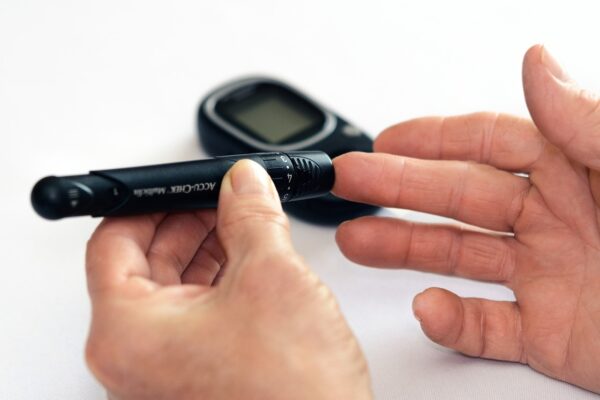
Travelling with diabetes? What you need to consider when planning a holiday
If you have diabetes and you’re planning on going travelling in the near future, there are some considerations to make before setting off. However, diabetes doesn’t have to be a barrier that prevents you from going on holiday.
Find the information to help manage your diabetes while travelling, either in the UK or abroad. We offer specialist diabetes travel insurance, all you have to do is declare it when selecting your cover.
If you lose your medication while on holiday, medical travel insurance can prove useful in terms of helping you source replacements locally and you could make a claim to recoup the cost (subject to the terms and conditions of the policy). Travel insurance for pre-existing medical conditions is available and the government recommends you have travel insurance every time you travel abroad.

Image by PhotoMIX-Company via Pixabay
Getting a letter from your GP
According to Diabetes UK (the country's leading diabetes charity), it is a good idea to visit your GP to explain that you’re going on holiday. Most doctors will have access to a travel letter template that explains your condition, the medication you require, and the equipment needed to treat diabetes. This should cover things like insulin, devices for delivering insulin, blood glucose monitors, needles, glucose tablets/liquids and ketone test strips.
It can be helpful if such a letter explains that you need to carry all medications/equipment in your hand luggage. This way, you will avoid issues if your luggage in the hold goes missing, or if your medication is spoiled during transit. However, some cabin crews may request that medications are handed over during the flight, and these can be administered by the crew when required.
Ensure you have sufficient medication for the duration of your journey
You may find it useful to request new prescriptions from your GP prior to travelling. This way, you will have complete peace of mind that you will have enough medicines to last for the entirety of your holiday. You can find out more about travelling with insulin on the NHS Diabetes My Way website.
If you lose your medication while on holiday, medical travel insurance can prove useful in terms of helping you source replacements locally and you could make a claim to recoup the cost (subject to the terms and conditions of the policy). Travel insurance for pre-existing medical conditions is available and the government recommends you have travel insurance every time you travel abroad.
Manage your medication while travelling through different time zones
If your journey is taking you into a different time zone, you may have to adjust your medication intake. International flights travelling east or west tend to involve cross-time zones, which means your date of travel could be shortened or lengthened by at least one hour.
While this can seem daunting, you should avoid becoming alarmed. It is relatively easy to figure out how to adjust the timing of your insulin or other medications by time zone. You may find it useful to consult with your GP regarding how to adjust the timing of your medication, or whether your GP even recommends this at all (this will depend upon the individual facets of your condition).
Diabetes, insulin and travelling to a different time zone: what you need to know
If you are travelling east to west, the day will be lengthened. Some clinicians advise having an extra meal and covering this with extra insulin. When travelling west to east, the day becomes shorter and your carbohydrate and insulin intakes may need reducing.
As a general rule, if the change of time zone is less than four hours, either way, you won’t need to make huge changes to your medication. If your day is lengthened by four or more hours, you may need a small amount of insulin with a meal, between your two main injections. You should discuss this with the doctor who oversees the management of your diabetes.
Shortened days could mean that you need to reduce the amount of pre-flight insulin. Again, it is important to discuss this with your care team prior to travelling. When doing so, ensure that you have your flight details with you.
Insulin storage while abroad
If you’re travelling to a country with a warm climate, you should be aware that excess heat could damage your insulin and prevent it from working. Heat-damaged insulin may appear cloudy or could take on a brownish appearance. Do not use insulin if it looks like this, as it may have spoiled. When travelling to a warm country with insulin in your luggage, store your medication in a cool bag (or use plastic ice blocks) and remember to transfer it to a hotel fridge upon arrival at your destination.
In extremely cold climates, insulin can freeze. If it freezes, it cannot be used upon thawing. If you are visiting somewhere cold, try to keep your insulin at room temperature. When outside, keep it in an inside pocket to prevent it from freezing.
Understanding airport restrictions
Modern travel is often subject to heightened security measures. It’s therefore crucial to plan ahead if you have diabetes, as this will help you avoid running into any last-minute snags or problems.
Security regulations currently mean that liquid items are only allowable in hand luggage if they are stored in containers of 100ml or less. However, there are exceptions to the rule, and essential medicines are considered an exception.
If you require treatment with a continuous glucose monitor, or if you treat your diabetes with a pump, you should contact your airline before you travel to make them aware of this. The Civil Aviation Authority (CAA) recommends persons with diabetes should discuss the medical devices they need to take on board prior to attempting travel. Some airlines may require you to fill in additional paperwork. If you fail to do this, you may not be allowed to board with your medical devices.
You should also find out if any restrictions are in place at the airports you will be travelling through. You can do this by contacting your airline or getting in touch with the Department for Transport’s enquiry section. You will be able to find information, including whether you need to bring a prescription or documentation from a doctor to confirm your condition.
Travel insurance over 70: get medical travel insurance to cover diabetes
If you have diabetes, holiday insurance is important. Be sure to purchase medical travel insurance which fully covers all pre-existing medical conditions. With a specialist travel insurance policy in place, and all your conditions declared, you can enjoy peace of mind that you’ll be covered in the event that you require emergency medical treatment relating to your condition.
Travel insurance over 65: find out more
If you’d like to know more about medical travel insurance for people over 65 who have diabetes, Total Travel Protection has everything you need. To arrange a policy, simply browse our website - alternatively, you can contact us online or over the phone, and we’ll be happy to help answer any queries you may have.
Always consult your own doctor before travelling
These travel tips are intended to provide general information to those planning to travel abroad. They do not replace a visit to your doctor . If you are planning a holiday you should consult your doctor to ensure that you are fit to travel and discuss any specific health requirements you may have.
Article tagged with:
